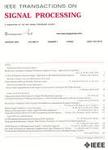版权所有:内蒙古大学图书馆 技术提供:维普资讯• 智图
内蒙古自治区呼和浩特市赛罕区大学西街235号 邮编: 010021

作者机构:Sun Yat Sen Univ Sch Comp Sci & Engn Guangzhou 510006 Guangdong Peoples R China Pazhou Lab Guangzhou 510300 Guangdong Peoples R China Nanjing Univ Informat Sci & Technol Sch Artificial Intelligence Nanjing 210044 Peoples R China
出 版 物:《IEEE TRANSACTIONS ON SIGNAL PROCESSING》 (IEEE Trans Signal Process)
年 卷 期:2022年第70卷
页 面:4711-4726页
核心收录:
基 金:NSF Jiangsu [BK20210642] NSF China Guangdong Basic and Applied Basic Research Foundation [2021B1515020094] Guangdong Provincial Key Laboratory of Computational Science [2020B1212060032]
主 题:Resource management Signal processing algorithms Heuristic algorithms Cost function Costs Lagrangian functions Convergence Resource allocation decentralized multi-agent network Byzantine-resilience
摘 要:This paper considers the resource allocation problem over a decentralized multi-agent network and at presence of Byzantine agents. Compared with its centralized counterpart, a decentralized algorithm enjoys better scalability when the network is large-scale, but is more vulnerable when some of the agents are malicious and send wrong messages during the optimization process. We utilize the classical Byzantine attack model to describe these malicious actions, and propose a novel Byzantine-resilient decentralized resource allocation algorithm, abbreviated as BREDA. At each iteration of BREDA, each honest agent receives messages from its neighbors, uses coordinate-wise trimmed mean (CTM) to aggregate these messages, and then updates its local primal and dual variables with gradient descent and ascent, respectively. Theoretical analysis indicates that BREDA converges to a neighborhood of an optimal solution. Numerical experiments demonstrate the resilience of BREDA to various Byzantine attacks.